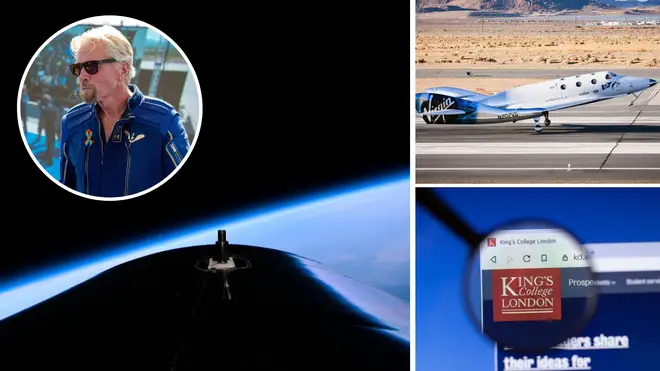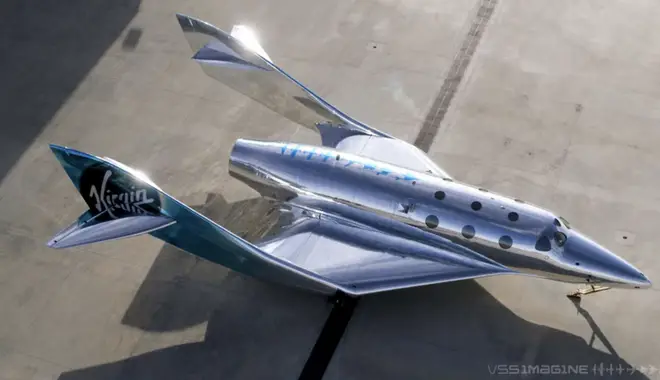
Nick Abbot 10pm - 1am
15 May 2023, 15:50 | Updated: 15 May 2023, 15:56

Passengers flying from the UK to Australia will be able to make the journey in under two hours, if new plans to fly via space get the go-ahead.
Research currently being conducted by the UK Civil Aviation Authority (CAA), the organisation which overseas aviation safety, is looking at the effects of g-force on the human body.
It forms part of a plan to shrink intercontinental travel time by introducing commercial flights that travel via space - a move that could be viable within the decade.
The CAA funded medical studies specifically look at the impact of suborbital space flight, which would see passengers experience brief stints of space travel before descending back to earth.
Listen and subscribe to Unprecedented: Inside Downing Street on Global Player

Suborbital space travel has been harnessed by billionaires including Sir Richard Branson and Elon Musk in recent months, with seats aboard their aircraft costing around £350,000 for a single trip.
Flights between the two nations usually take around 22 hours, with Australian carrier Quantas recently announcing flight time will be reduced to 19 hours from 2025.
The CAA now predicts that space flights will soon become increasingly common and less expensive, with the body adding they could even become “accessible to anybody” in the future when they spoke with the Sunday Times.
The current limitations are believed to centre around passenger fitness, with commercial airline travellers levels often falling well below their professional astronaut counterparts.
Researchers at King's College London have joined forces with the RAF as part of the research, with results showing the majority of passengers could withstand the G-forces required such flights.

According to preliminary results, older passengers actually handled the increased gravitational forces better than younger people.
However, the biggest hurdle is expected to be pollution.
A byproduct of air travel is notable Co2 emissions that have a heavy impact where global warming is concerned.
Smaller aircraft travelling at higher speeds - such as the now defunct Concorde - emit higher levels of Co2 than larger, slower commercial planes.
The report, published in the Aerospace Medicine and Human Performance scientific journal, said: “Commercial suborbital space flights are now available for tourism and scientific research, and are ultimately anticipated to mature into extremely fast point-to-point travel, eg London to Sydney in less than two hours.”